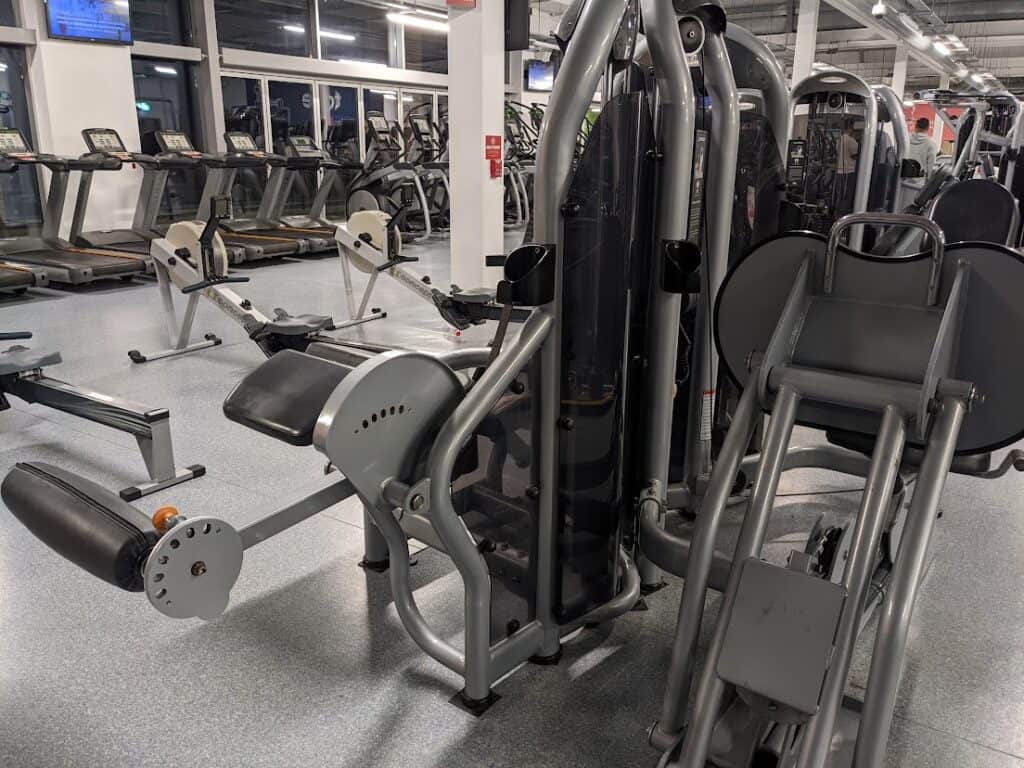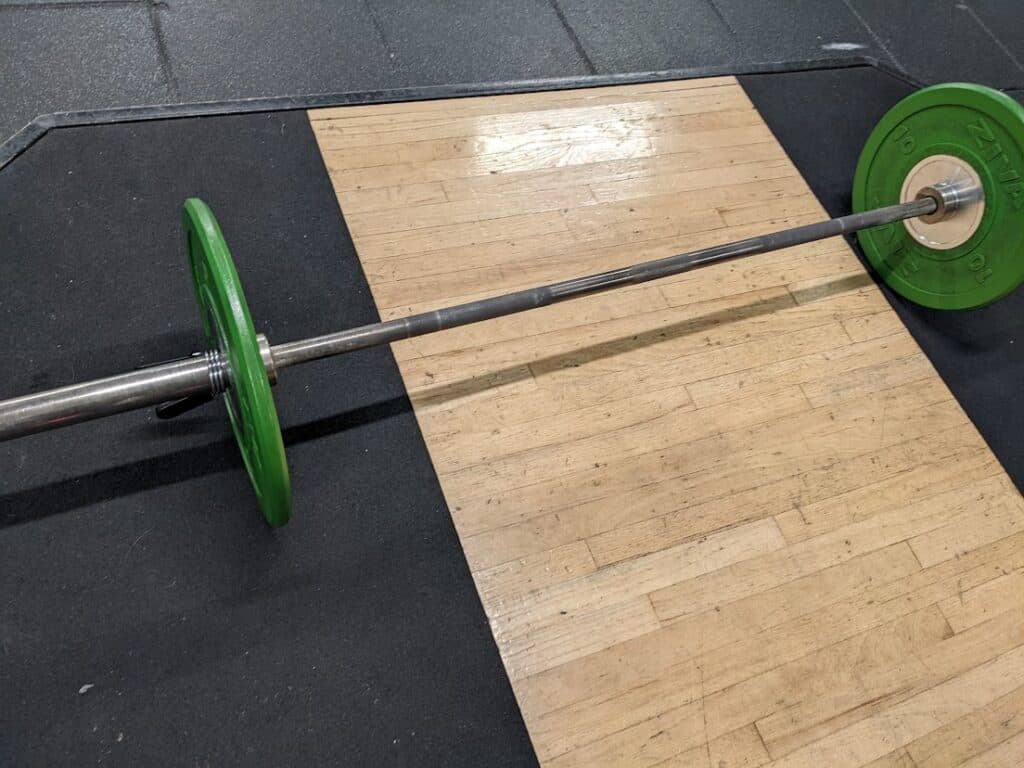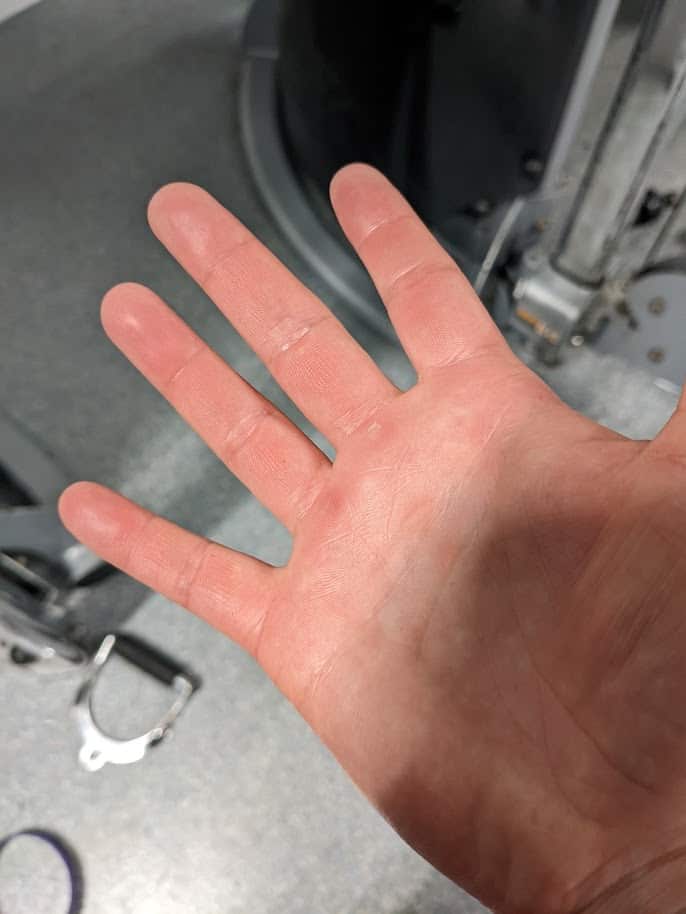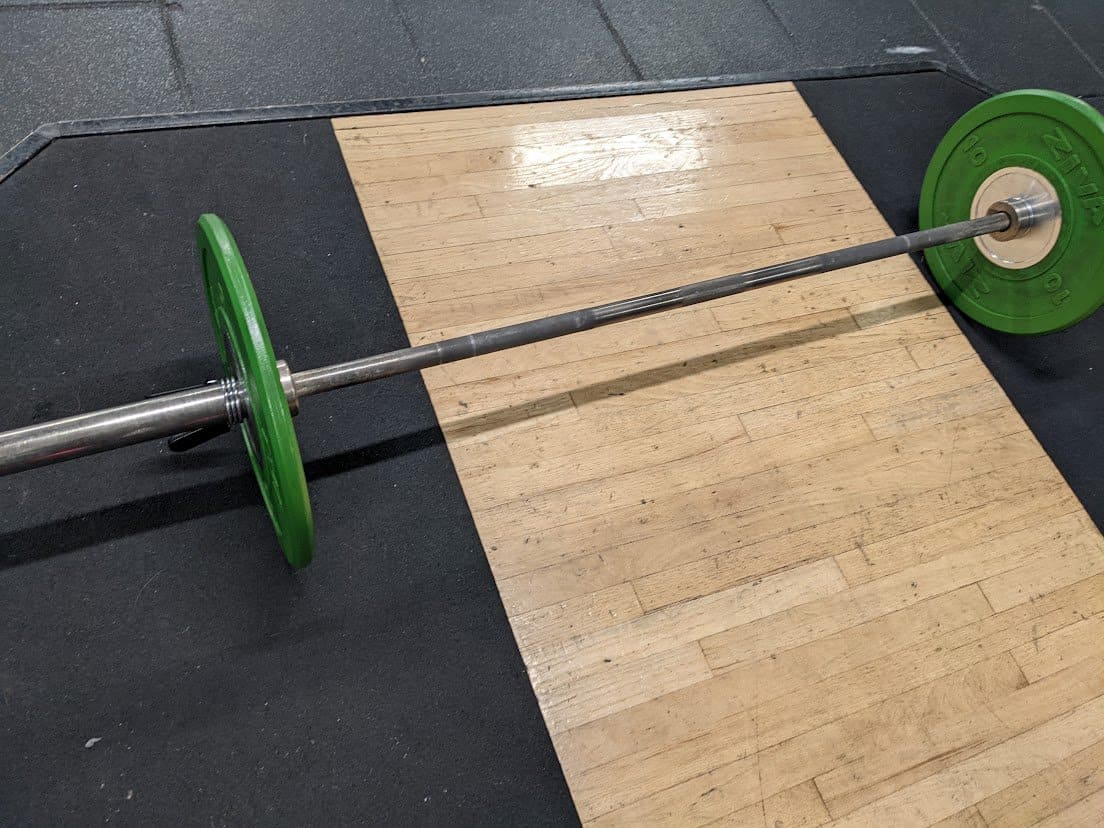We all know that lifting weights can be beneficial for us in many ways, if that’s something that we want to do. But if you’re a pianist or other instrumentalist and you’re thinking of getting started in the gym, you may be concerned about whether or not it will impact your playing.
People have differing opinions on this topic, so today I’m going to share my own personal experience as a pianist who has been lifting weights on and off since 2015. I am not a personal trainer or a physio/physical therapist – please consult a health professional before getting started lifting weights if you are at all worried about it, or if you have pre-existing injuries or vulnerabilities.
Some people will say that you shouldn’t lift heavy weights as a pianist, but in my experience you absolutely can make lifting weights compatible with playing the piano. You just have to be a bit more intentional and careful about how you plan it into your schedule.
Concerns About Lifting Weights as a Pianist

I find that when I do a session of lifting that involves a lot of gripping, particularly exercises where a substantial amount of weight is being moved, such as deadlifts or pullups, my hands feel very stiff afterwards, and I can’t move my fingers as quickly, usually for the remainder of that day. I feel like I have less control over my hands if I then go and play the piano.

I’ve noticed a decline in my piano-playing ability post-weightlifting workout enough times that I now know that I need to take into account when I plan my day or week. When I go to the gym to do a lot of exercises that involve gripping, that marks the end of my optimal piano playing for that particular day.
I’ll do my piano practice each day before going to the gym, and if I have a rehearsal or a concert in the evening, then I have a few options: only do exercises that minimally use the hands, use lighter weights than I ordinarily would, go to the gym after the rehearsal or concert, don’t go to the gym that day, or go to the gym many hours before when I need to play the piano so that some of this effect has worn off in time.
Any slowness in my fingers resulting from weightlifting has always disappeared by the next day in my experience.
Callouses on your palms just below the fingers are also something to keep an eye on if you are doing a lot of heavy gripping. When I first started lifting weights I used weightlifting gloves for this reason, however the personal trainers that I went on to speak to were against using gloves in the gym and for building up grip strength without gloves, so I eventually ditched the gloves and accepted the callouses.

For me, these calluses can be painful in the moment of the exercise if I’ve done a lot of gripping lately, but as soon as I finish my workout I no longer notice them and they don’t bother me. They certainly don’t interfere with my piano playing like I worried they would do in the beginning! However, do your own research on this, consult professionals and make your own decision about what’s best for you.
I know that Penelope Roskell, in her excellent book The Complete Pianist, warns against lifting heavy weights with the upper body for pianists, but is pro-strengthening exercises for legs, back and core. However, many physical therapists such as Jeff Cavaliere advocate for training the entire body in a balanced and intentional way, to avoid muscle imbalances that can lead to injuries, and this latter approach is what I personally currently follow.
To offset any additional tension I am adding to my body, particularly my arms, from lifting weights, I personally make an extra effort to include sports massage
To offset any additional tension I am adding to my body, particularly my arms, from lifting weights, I personally make an extra effort to include sports massage (that I mostly do myself and sometimes see a professional for) and plenty of foam rolling as part of my regular routine.
Benefits of Lifting Weights as a Pianist
Playing the piano obviously involves a lot of sitting down in one place and position, so any type of exercise that is different from that position will likely be beneficial to counteract that, not to mention the more general benefits of any exercise on health, both physically and mentally.
Lifting weights is one of my favourite forms of exercise, and for me the benefits of it far outweigh any temporary reduction in piano-playing ability, which can be easily worked around by scheduling gym visits around piano-playing (or the other way round depending on your priorities!).
Anecdotally, the periods of my life when I’ve been in the gym the most have correlated with me having more energy for everything else in my life, and that includes piano. But the most important thing is to listen to your own body, and consult a health professional if at all worried.
Read next:

